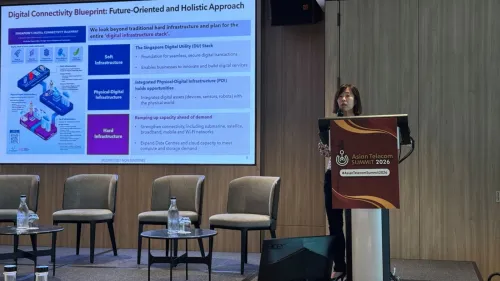
Talent admission schemes boost Hong Kong rental market
Government initiative coincides with shifting trend towards leasing.
Around 75,000 approved talents arrived in Hong Kong between January and October 2024, ahead of changes by the government to different talent admission schemes in response to the city’s labour shortage. Along with their dependants, these new arrivals have given HK’s rental market a year-on-year lift whilst augmenting the Hong Kong workforce.
On 27 November 2024, Secretary for Labour and Welfare, Chris Sun, noted: “The Labour and Welfare Bureau implemented on November 1 this year’s enhancement measures, including extending the validity period of the first visas of high-income talents under the Top Talent Pass Scheme (TTPS) from two years to three years, expanding the list of eligible universities under the TTPS, and improving the criteria and arrangements for the General Points Test under the Quality Migrant Admission Scheme (QMAS)…
“In the first 10 months of 2024, about 180,000 applications were received under various talent admission schemes, with nearly 120,000 approved. Amongst those approved under various talent admission schemes, around 75,000 talents arrived in Hong Kong. At the same time, about 75,000 dependants arrived in Hong Kong together with the approved talents.”
On top of the enhancements, nine professions were added to the so-called “Talent List” on 1 March 2025, bringing the total to 60 occupations with staffing deficits in Hong Kong.
The Talent List additions are accountants, financial professionals with Islamic market experience, experienced professionals in commodities trading, experienced systems architects, patent professionals, legal knowledge engineers, ship surveyors, professionals in green shipping, and aircraft maintenance engineers.
“The updated list now includes 60 professions facing local talent shortages, allowing eligible foreign professionals to benefit from streamlined immigration under the QMAS, General Employment Policy (GEP), and Admission Scheme for Mainland Talents and Professionals (ASMTP),” said immigration law practice Fragomen in an update.
“Additionally, employers hiring professionals on the Talent List through the GEP and ASMTP no longer need to prove local recruitment difficulties, expediting the hiring process.”
Also, as highlighted by Fragomen, the General Points Test now features a new online platform that aims to facilitate faster application processing. The language requirements for applicants have been simplified as well.
What do the new arrivals mean for HK property?
In a new report, the Rating and Valuation Department (RVD) highlighted the impact of these talent admission schemes on the property sector.
As part of the preliminary findings of the RVD’s annual review of the supply and activities in Hong Kong’s local property market, the department published on 28 March: “The cancellation of all demand-side management measures in the first quarter of 2024 injected short-lived impetus to the domestic sales market, as prices thereafter resumed their downward trend during the year amid cautious sentiments due to uncertain external economic outlook and tight financial liquidity.
“However, the sales market was stabilised in the last quarter following a number of successive interest rate cuts together with the adjustments to the maximum loan-to-value ratio and the debt servicing ratio limit. In the end, domestic prices fell for the past three consecutive years, with a 7.2% year-on-year decrease by December 2024, but trading volume surged by 23% in 2024 from the preceding year.”
The RVD went on to explain: “This was mainly attributed to the competitive pricing strategies adopted by developers to boost primary sales against a backdrop of pent-up demand from buyers. Buoyed by the influx of talents arising from various talent admission schemes implemented by the government and a shifting trend from home purchase to leasing, the rental market outperformed the sales market with rents registering a year-on-year growth of 3.3% by December 2024.”
Of the past year’s private domestic completions – or the premises issued with an Occupation Permit – almost half (48%) were in the New Territories; 45% in Kowloon; and 7% on Hong Kong Island.
Price-wise, stability is expected in the first half of 2025.
“The RVD index shows that there’s a downward adjustment in home price, owing mainly to the large amount of supply in the first-hand market, and also the recent adjustments to stamp duty have influenced home prices, with sellers and buyers attempting to keep transactions below the $4 million threshold,” Kathy Lee, head of Research and Retail Consultancy at Colliers Hong Kong, told GovMedia.
“Despite these fluctuations, we forecast that residential prices will remain stable in the first half of the year and anticipate a potential growth of up to 5% by the end of the year, if the US Federal Reserve interest rates reduction cycle continues.”
Lee’s comments come after it was reported that property income will continue to be essential to government-related entities in Hong Kong such as the Urban Renewal Authority, Hong Kong Cyberport Management Company Limited, MTR Corporation Limited, Hong Kong Science & Technology Parks Corporation, Hong Kong Housing Society, and West Kowloon Cultural District Authority.
Ricky Tsang, director and lead analyst at S&P Global Ratings, pointed out: “While their property income varies, all the highlighted entities rely on it.”














